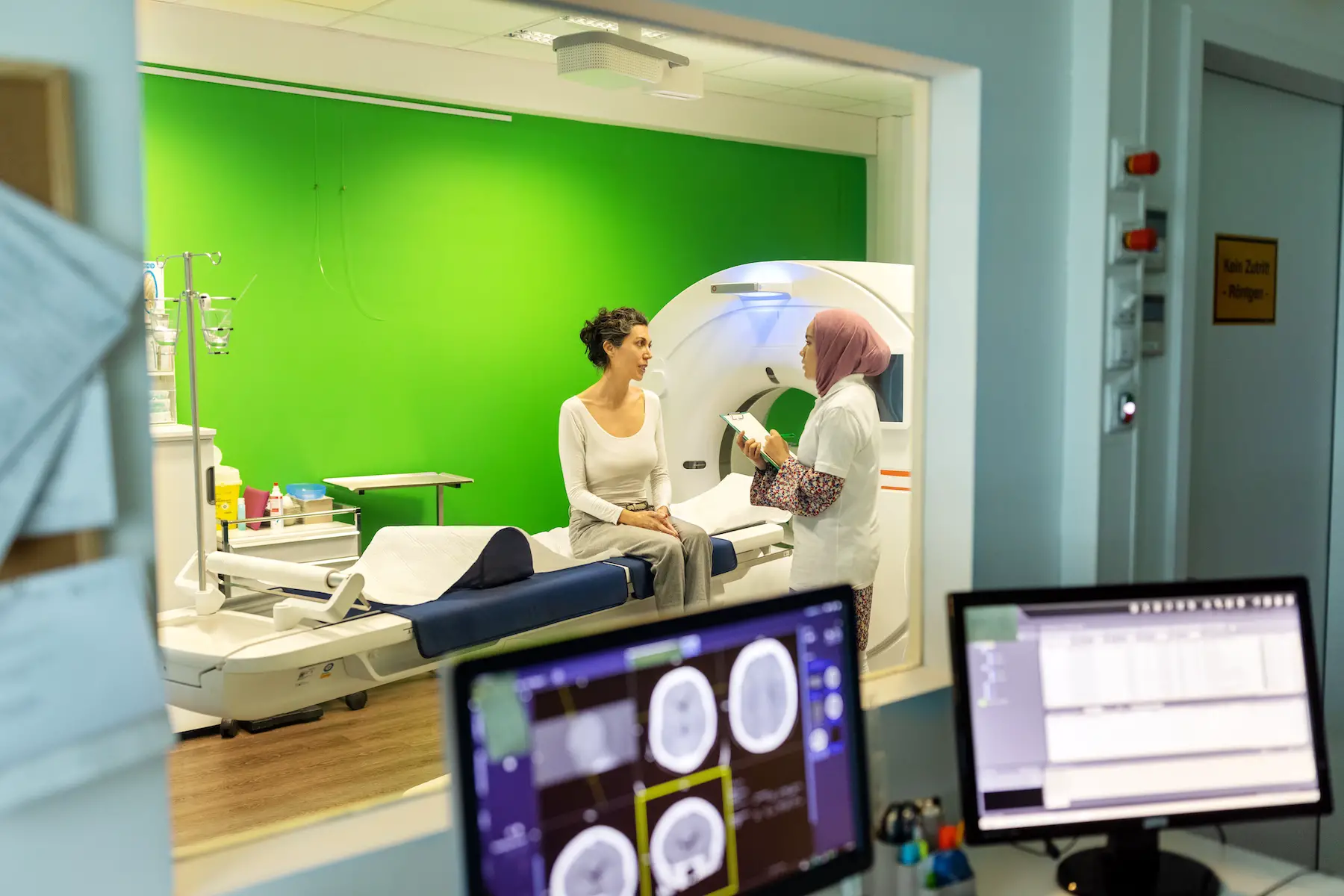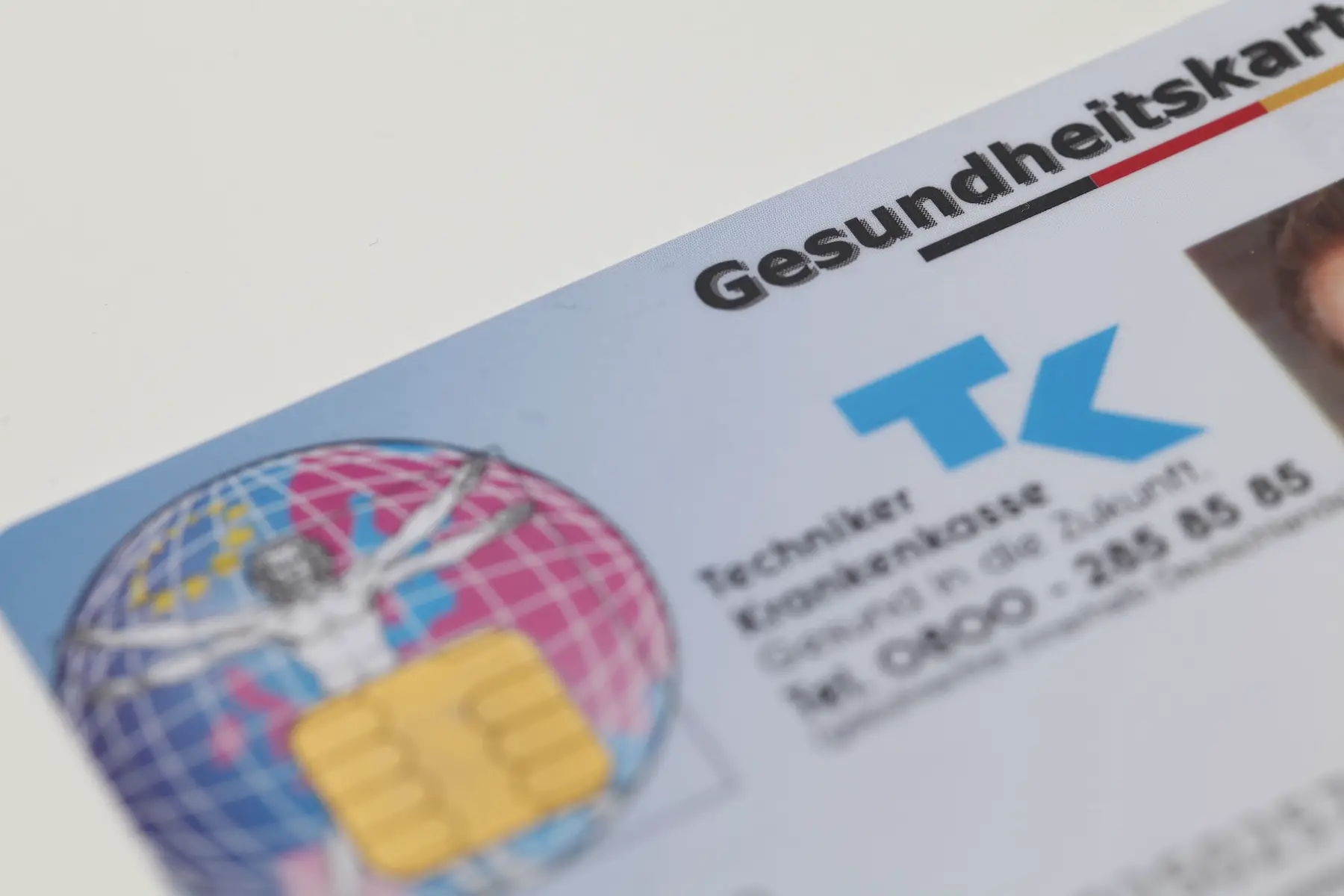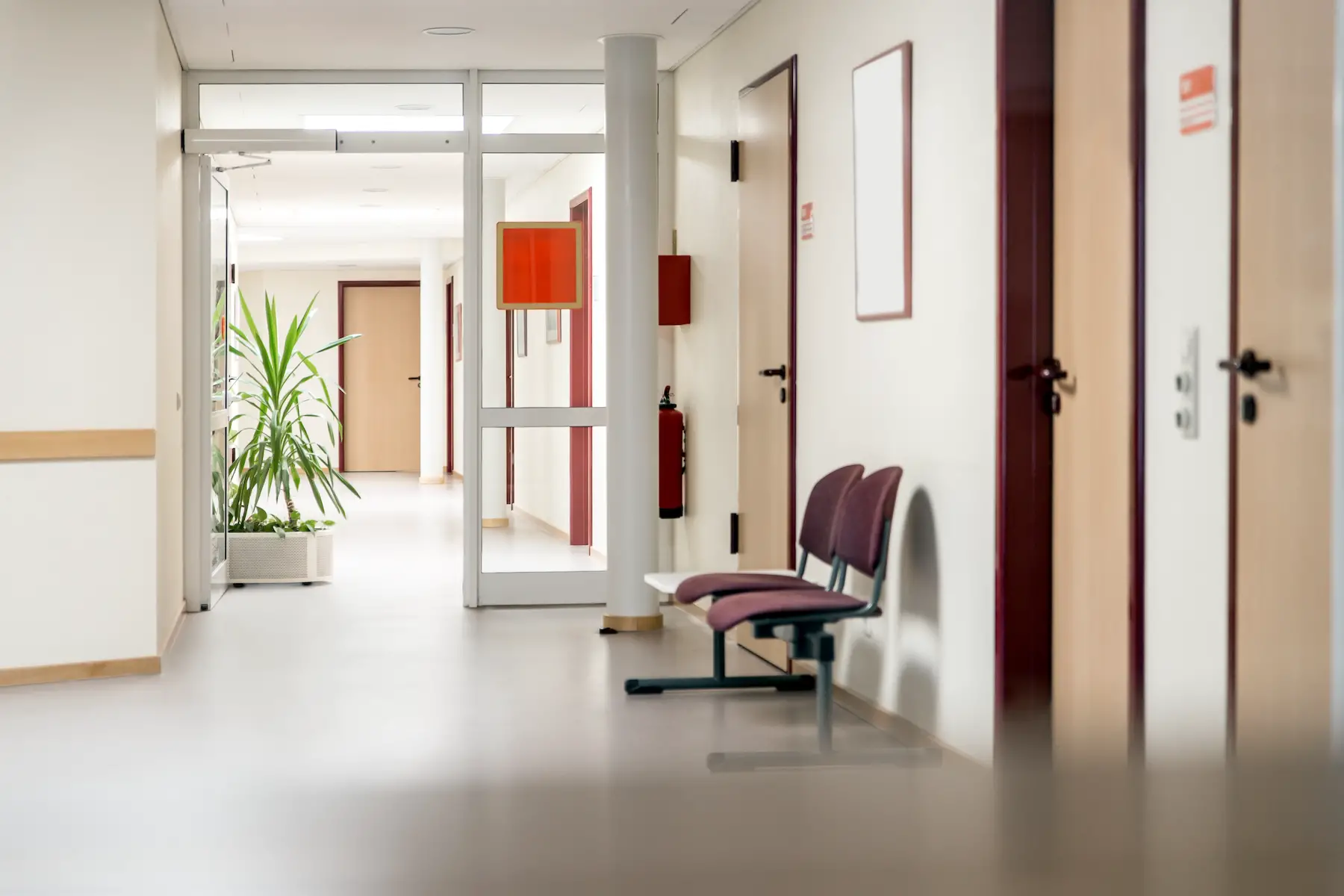Understanding a new country’s healthcare system can seem daunting, especially when faced with a language barrier. Luckily, most residents who live or work in Germany are likely eligible for state health insurance which covers everything from medical emergencies to prenatal services. While retirees and unemployed residents are covered under state healthcare, there are special rules for self-employed persons and university students. Private insurance is also worth checking out if you have high healthcare costs or don’t speak German.
Read on for more about accessing the German healthcare system, including:
- Overview of healthcare in Germany
- Who does the German healthcare system cover?
- What does the German healthcare system cover?
- How to register for heath insurance in Germany
- German private healthcare
- German doctors and specialists
- Women’s healthcare in Germany
- Children’s healthcare in Germany
- German dentists
- Hospitals in Germany
- German health centers and clinics
- German pharmacies
- Mental healthcare in Germany
- Other forms of German healthcare
- In an emergency
- German healthcare vocabulary
- Useful resources
Cigna Global
Want access to the best private medical services in Germany? Speak to the healthcare professionals at Cigna Global today and find a policy that’s right for you. Take advantage of their global network of doctors, specialists, therapists and more with coverage tailor-made for you and your family. If you’re starting a new life in Germany, get peace of mind with Cigna Global.
Overview of healthcare in Germany
How does the German healthcare system work?
Germany’s social health insurance system dates back to 1883, making it the oldest in the world. Today it provides a comprehensive network of doctors, specialists, and facilities that treat patients on both the public and private insurance schemes.

Statutory health insurance (Gesetzliche Krankenversicherung – GKV) is the standard form of medical coverage in Germany and is a right given to all residents. Germany has 110 public sickness funds (Gesetzliche Krankenkasse) as of 2021.
In addition to public coverage, high-earning and self-employed residents can take out complementary private health insurance (Private Krankenversicherung – PKV). This type of insurance works like top-up coverage to help with costs not paid by the state system.
The Bundesministerium für Gesundheit (BMG) is responsible for developing social healthcare policy in Germany. The Gemeinsamer Bundesausschuss (G-BA) regulates the German medical sector, including doctors, hospitals, and pharmaceuticals.
How is the healthcare system funded?
Germany is the highest spender on healthcare in Europe relative to its gross domestic product (GDP). The country dedicates 12.8% of its annual GDP to healthcare, which is over €5,000 per inhabitant each year.
Healthcare in Germany is funded by statutory contributions, ensuring free access for all. Public insurance contributions cover the majority of costs and have remained steady since 2015 with employed residents automatically paying 14.6% of their income toward healthcare. This 14.6% is split with employers to equal about 7.3% from each employee’s monthly wages.
Public health insurance companies may also charge their own contribution rate that fluctuates each year. The average contribution rate across all public insurers in 2021 was 1%. On top of this, everyone has to pay a fee of €10–15 for their first medical visit every quarter.
Who does the German healthcare system cover?
The German public healthcare system covers about 90% of residents. As of 2023, all employed residents who earn between €520 and 5,550 a month are eligible for state public health insurance.

In certain conditions, family co-insurance extends to the spouses, civil partners, and children (up to age 23, or 25 if studying) of those insured by the public system. Those who receive unemployment benefits or a German pension, including retirees, are also covered under the public healthcare system.
Non-residents, as well as students over 30 and PhD candidates, need to have private insurance coverage to access healthcare. Temporary visitors to Germany typically need to pay for treatment and claim reimbursement later.
If you are from the European Union (EU), European Free Trade Association (EFTA), or Switzerland and staying temporarily, you may use your European Health Insurance Card (EHIC). Once you become an official resident, you must take out compulsory German health insurance.
What does the German healthcare system cover?
Public state insurance under the German healthcare system covers outpatient care at doctor’s offices, hospital stays, and emergency room visits. Everyone covered under German public healthcare has access to vaccines and medication, which occasionally require a co-payment.
Similar to the private scheme, various providers across Germany offer public health insurance plans, and you can only sign up with one at a time. 95% of benefits are the same across all public insurance companies.
State healthcare covers dentistry, eye care, and alternative medicine, but with co-payments required and some limitations on treatment. Mental healthcare, such as therapy, is also available under state healthcare for up to a certain number of treatment sessions per year.
Sickness benefit (Krankengeld) is a form of social security included under the German state healthcare system. This allows you to collect your full wages for up to six weeks of being sick, and 70% of your pay starting the 7th week. In 2023, the maximum daily amount of sickness benefit is €116.88 for up to 78 weeks within three years.
How to register for heath insurance in Germany
If you live long-term or work in Germany, you must register with the German authorities at your local town hall (Einwohnermeldeamt). Once you have a German social insurance number (Sozialversicherungsnummer) and make contributions, you are fully entitled to public healthcare.
However, you must first register with a health insurance fund. See rates offered by different state insurers on the GKV website. Your public health insurance plan can also cover a non-working spouse and any dependents or children.

Your insurer will give you a health insurance card (Gesundheitskarte) to take with you each time you visit a German doctor or dentist. Since 2014, an electronic eHealth card with a photo of the holder (unless under 15) is proof of entitlement to medical services and benefits. Providers scan this card containing your name, date of birth, address, and health insurance data each time you visit a medical service center.
German private healthcare
You can choose to opt out of the state insurance scheme and take out a private plan (PKV) if you are one or more of the following:
- An employee earning more than €66,600 per year (2023)
- Self-employed
- A student over 30 years old
- Currently pursuing a PhD
- A civil servant or other public employee
PKV usually covers a more comprehensive range of medical and dental treatments than GKV. Companies offer different levels of coverage. In Germany, you’ll find a range of local and international insurers, including:
- Allianz Care
- Cigna Global
- Embea – provides coverage for critical illnesses
- Feather
Rather than paying a percentage of your salary like with the public scheme, private premiums depend on your risk profile. This includes your age at entry into the scheme, and any pre-existing conditions for yourself and your dependents. Health insurance premiums are partially tax-deductible and your employer may contribute to your private plan costs.
German doctors and specialists
Germany has a very high population of doctors at 4.5 practicing physicians for every 1,000 residents (2021). German doctors are called Ärzte, while the equivalent of a family or primary care doctor is known as a Hausarzt.
Under the German healthcare system, you are free to choose your doctor. Keep in mind that many speak at least basic English, but you may need to check their spoken languages beforehand.
Practice hours are usually 8:00–13:00 and 15:00–18:00 from Monday to Friday; many close for Wednesday afternoons. Few practices are open on Saturdays, and only emergency services operate on Sundays.

Some doctors have an open-door policy where you can turn up at the office; however, you may have a long wait. You will need a referral from your primary doctor to see many specialists, although some do take direct bookings, like gynecologists.
Women’s healthcare in Germany
Gynecologists (Frauenarzt) are accessible in Germany through public health insurance and without a doctor’s referral. Your gynecologist is the person to see for women’s healthcare matters, such as contraception, cancer screenings, and sexually transmitted infections. They also provide care and support during pregnancy, possibly with the help of a midwife or obstetrician.
Statutory insurance covers all maternity costs. However, private insurers may only provide maternity coverage if you have selected it, so it’s wise to check.
Pregnancy tests, condoms, and emergency contraception are all available in pharmacies. However, a gynecologist must prescribe birth control pills, intrauterine devices (IUDs), and contraceptive shots. Public health insurance doesn’t cover most contraception costs after you turn 20. However, it does cover the recommended screenings for cervical cancer with a Pap test after age 20 and breast cancer by mammogram after age 50.
Technically abortion is illegal in Germany, but it is not punishable by German law if carried out in the first 12 weeks of pregnancy and after mandatory counseling. If the mother’s life is in danger or if the pregnancy poses serious risks to her well-being, abortion possible up to 22 weeks without legal repercussions. Unfortunately there is a relatively small pool of qualified abortion providers in Germany, especially in certain parts of the country, causing barriers to access for many women.
Children’s healthcare in Germany
Public health insurance covers children’s medical care free of charge until age 18. Pediatricians are accessible through the German healthcare system without a referral. Pediatricians typically treat children from birth until age 12, when they transfer to a general doctor.
Many specialist children’s hospitals offer emergency and outpatient care. These hospitals provide treatment for various illnesses and diseases as well as services such as speech therapy.
Vaccinations for children are free under the German healthcare system. There is a national vaccination schedule that includes immunization against conditions including:
- Chickenpox
- Hepatitis B
- Polio
- Measles, mumps, and rubella (MMR)
German dentists
In Germany, dentists must be accredited by the Kassenzahnärztliche Bundesvereinigung (KZBV) You can find a dentist (Zahnärzte) who operates within the statutory health insurance scheme on the KZBV website. Otherwise, when you visit a dentist, look for a sign saying Kassenarzt or Alle Kassen, meaning the dentist operates under the German healthcare system.
Children and young people up to age 18 do not pay for dental treatment. However, check with your insurer about what the state insurance covers, as there is limited coverage.
Even private insurers won’t fully reimburse for all treatments, and dental costs in Germany are extremely high. While routine procedures are covered, more extensive work – such as dentures and crowns – is only partially reimbursed.
If you’re looking for dental insurance in Germany, there are plenty of companies that provide it, including DA Direkt.
Hospitals in Germany
In Germany, you can find three different types of hospitals, or Krankenhäuser:
- Public hospitals (Öffentliche Krankenhäuser) run by local and regional authorities
- Voluntary, non-profit hospitals (Freigemeinnützige Krankenhäuser) run by churches or organizations run by the German Red Cross
- Private hospitals (Privatkrankenhäuser)
Your primary care physician will need to refer you if you wish to see a specialist that works in a hospital. You should take your EHIC or Gesundheitskarte when you visit.

If you are going to be staying overnight, note that hospitals have a certain amount of space for patients with public insurance and for those with private coverage. The term “private room” refers to the type of insurance covering it, and it does not mean that you get the room to yourself. These private rooms usually accommodate two patients with a curtain separating them.
After the COVID-19 pandemic, German hospitals are experiencing a major healthcare staff shortage, with over 20,000 jobs left open. As a result, in-hospital wait times have increased and the quality of care may be lower in certain departments.
German health centers and clinics
Doctors and specialists from individual or joint practices generally provide outpatient care in Germany. You will also find many public and private medical centers where various health professionals come together to focus on one specific area – for example, menopause or types of cancer. These clinics are a one-stop shop for patients with certain diagnoses and may include primary care doctors, medical specialists, physiotherapists, psychotherapists, and nurses.
German pharmacies
Pharmacies (Apotheke) are usually open from 9:00–18:00 Monday to Friday and 9:00–12:00 on Saturdays. They all provide addresses for services outside of opening hours. Check Aponet.de for information about local on-call pharmacies.
You can take a prescription from your doctor to any pharmacy. If the prescription is on a pink slip of paper, you will have to pay a non-refundable fixed charge (around €5–10). You have to pay the full cost for certain medications for minor ailments, such as cough syrup.

If you have private insurance, you will most often get prescriptions on a blue sheet of paper. This means you have to pay for the drug upfront and then send the receipt to your insurance for reimbursement.
Medication only sometimes comes with dosage instructions on the package. Make sure you ask your doctor when and how much you should take and write down the information to have it later. Sometimes your pharmacist can also tell you about dosages, but they may not speak English. If you don’t speak German, it might be easier to reach out to your doctor for additional advice about your medications.
Mental healthcare in Germany
Research reveals that 5.3 million Germans were living with depression as of 2019. Thankfully, Germany has increased its focus on mental healthcare services in recent years, and there is not as much stigma around psychological disorders as there once was. Furthermore, more professionals now recognize of the need to research and treat common issues like anxiety, depression, and PTSD.
Family doctors can initially deal with general mental health issues and will prescribe necessary medication or refer patients to specialist treatment. Accessing some services, such as psychiatrists, psychologists, and mental health specialists directly without a referral is also possible. However, you will need to check what treatments your insurance policy covers.
You can seek treatment for more serious and enduring mental health concerns in either:
- Psychosomatic outpatient clinics for conditions such as severe depression, anxiety, and eating disorders
- Psychiatric hospitals for in-patient stays ranging from a few days to several months
Other forms of German healthcare
The German healthcare system recognizes alternative and complementary medicine, but costs are rarely reimbursed under public insurance.
Licensed Heilpraktikers can also deliver alternative and complementary treatments. These are practitioners of natural therapies who don’t require formal medical degrees but have to pass an exam set by the health authorities. Chiropractors in Germany need the Heilpraktiker license even if they have a medical degree.
Public health insurance is most likely cover alternative treatments if you have been referred by your primary care doctor, and:
- There are no other treatments available
- Standard treatments are likely to have detrimental side effects
- They are cheaper and doctors consider them safe and cost-effective
In an emergency
For urgent medical treatment in Germany, you can go to the emergency room (Notaufnahme). Both state and private health insurance cover emergency services. If you need an ambulance, you can call the pan-European number 112 free of charge. In addition, the fire department’s ambulance service (Rettungswagen) will also take you to the nearest hospital.

Numbers to call for after-hours or urgent medical care are:
- For an emergency doctor: 19 242
- For a non-emergency doctor: 116 117
Given the often overcrowded conditions of most emergency rooms, it’s important only to use them if you require urgent medical attention. For details about non-emergency, out-of-hours medical services, ask your doctor so that you can be prepared ahead of time.
German healthcare vocabulary
Here are some helpful German language terms related to healthcare:
- I need an ambulance – Ich brauche einen Krankenwagen
- Heart attack – Herzinfarkt
- I need a doctor – Ich brauche einen Arzt
- I need a hospital – Ich brauche ein Krankenhaus
- There’s been an accident – Es gab einen Unfall
- I am allergic to – Ich bin allergisch gegen
- Hospital – Krankenhaus
- Patient – Patient
- Sick – Krank
Useful resources
- Bundesministerium für Gesundheit – information about health and long-term care insurance in Germany
- Gemeinsamer Bundesausschuss – the regulating and decision-making body on German healthcare and health insurance
- Kassenzahnärztliche Bundesvereinigung – National Association of Statutory Health Insurance Dentists
- Aponet.de – find a local pharmacist
- Unabhängige Patientenberatung Deutschland – independent health advice for patients in German, Russian, and Turkish







